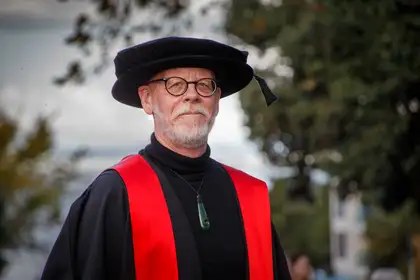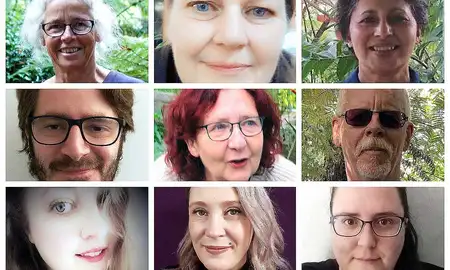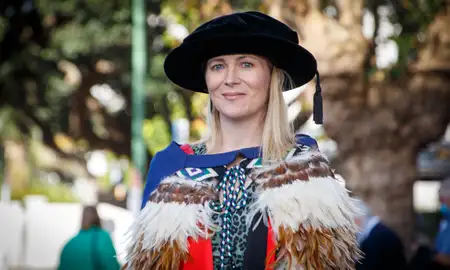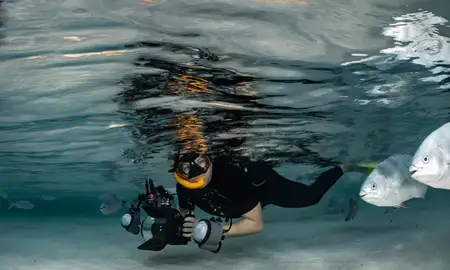
Dr Anthony Mattson
Dr Mattson’s doctoral studies saw him take a unique perspective in unravelling the pervasive issue of family violence in Aotearoa New Zealand, looking beyond the reductionist labels often given to men who use violence to better understand the complexities of their stories.
In 1987, while working at a fast-moving consumer goods company, Dr Mattson became a part-time distance student with Massey. He worked toward a Diploma of Business Studies as he felt he needed a formal education to inform his work of purchasing and supply. His diploma was conferred in 1991 and by 2011, he decided it was time to do something about the loose threads of an unfinished science degree he began in the mid-70s.
By transferring credits from the incomplete degree and being granted cross credits from his Diploma of Business, he realised he was over halfway through a degree with Massey, built from the foundations of his previous work.
“I wanted to focus on psychology. I had done two papers in the 1970s and regretted not doing more. Over the next two years, I enrolled in six psychology papers and passed them all with A’s. That was it! I was on a roll! Or so I thought.”
Dr Mattson refers to 2013 as a year marked with a sense of horror and helplessness. While he was in the middle of studying and managing a project in a toxic work environment, an immediate family member fell seriously ill. As the year continued and further personal events impacted on him, including separating from his wife, Dr Mattson finished the year chronically stressed.
“My counsellor suggested I should take a year off work to complete my degree and encouraged me to consider a career change into his line of work. He thought that I had lived experiences and grounding that would help me become a good counsellor. I took his advice and in 2014, I enrolled as a full-time distance student to complete my undergraduate degree.”
He went on to complete his degree with straight A’s and received a College of Humanities and Social Sciences Outstanding Achiever Award, and the Shouksmith Prize in Psychology. By 2016, Dr Mattson had completed a Bachelor of Science with First Class Honours in Psychology.
Dr Mattson had no plans to progress to doctoral studies until he found out Professor Mandy Morgan was stepping down as Head of the School of Psychology and was interested in supervising him.
“Professor Morgan’s work in feminist psychology and family violence were key factors in my decision to enrol in a PhD in psychology and to focus my research on the stories of men who had used violence against their intimate partners. My intention was to build deeper understandings of why men think, act, and feel the way they do.”
His thesis considered the pervasive and profoundly gendered landscape of family violence in Aotearoa New Zealand, made more complicated by its entanglement with poverty and other psychosocial factors. Men who use violence are often isolated, ignored, and stereotyped, reduced to labels such as perpetrators, offenders, or deviant ‘Others’, stripping them of the complexities of their stories.
Dr Mattson’s research challenged this narrative by talking with these men and exploring how they explained the lived experiences that led to their violence.
“This approach enabled me to think about many of the precursors of violence differently. We can look at violence not as incident-based episodes of physicality and force, but as ongoing entanglements of gendered power and control that are expressed in a wide variety of intimidating and coercive outcomes.
“What can it mean for a man who maintains he is not violent, because he’s unable to recognise the violence in verbal abuse, to face a serious criminal charge of threatening to kill his partner? And what of a man who has been raised to exert authority and control over his family, for whom violence is not violent but is instead rationalised as disciplinary?”
Dr Mattson’s research took place at Gandhi Nivas, a community-led initiative in South Auckland, which operates with support from New Zealand Police, ACC, Foundation North and others. It provides emergency accommodation, counselling, and early intervention services for men identified as being at risk of committing family harm.
Much of his time each week was spent on-site cooking meals for the men and involving them in the cooking process, something that was unfamiliar to many of them.
“As each meal was prepared, we would talk together, and as meals were eaten, the men began opening up and talking candidly about their violence. Some stayed only a few days, while others were bound to the site by bail conditions for many months and this allowed me to unpack how their violent stories changed and adapted over time as the men worked through their court appearances. Each time the sharing of food provided a safe platform to talk about things that would otherwise be difficult to discuss.
“Because of the ethic of care involved in cooking for the men, the stories they told became part of my own lived experiences. An important aspect of my research was examining the conflicts in my own positions: between being an objective observer and researcher, being subjectively and emotionally involved as an ethical activist wanting to address family violence, and being a man caring for other men while they tried to turn their lives around. These are not easy conversations to have, but if they are done well, they become powerful tools that help us find different ways of thinking about our research.”
Dr Mattson says retiring is low on his list of priorities. Aside from his immediate work as an administrator for the Anglican Diocese of Auckland and teaching himself Spanish, he wants to continue his work in this space.
After remarrying in 2017, Dr Mattson lives with his wife Denise who he says is a tower of strength and support for him. His son Connor, 24, has taken after his father with his passion for higher education and now uses his conjoint degrees in computer science and computer engineering to work in production optimisation for Rocket Lab.
Dr Mattson’s advice for current and future PhD students in the Social Sciences and Humanities is to challenge the academic conventions of thesis-writing.
“My thesis includes many of the recipes that the men and I prepared and ate together. It also gives a voice to an inanimate object – the house that is Gandhi Nivas – because it had its own presence in the research and lives of the men it accommodated. I write of my own experiences of violence in my life. My supervisors challenged me to write until I made them cry, and I did. My examiners cried as they read my thesis, as did I while writing. The topic is difficult, but it is one that needs to be addressed – and felt, as much as read.”
While Dr Mattson is listed as the author of his thesis, he states it was the support of many that helped the work come to be.
“Professor Mandy Morgan and Associate Professor Leigh Coombes encouraged me to continue even when I ached from the burden of the stories told to me. Ranjna Patel and her team at Gandhi Nivas helped me connect with the men in my research. My wife Denise, and dear friends Yvonne and Alex rescued me when I most needed rescuing. Emeritus Professor Kerry Chamberlain’s writings on creativity in thesis-writing inspired me to produce my own ‘transgressive thesis’.
“Finally, the participants and their stories are at the heart of my research. Their willingness to tell their violent stories and to own their violent actions were critical to the processes of collaborative meaning-making that my thesis embodies, and their stories became gateways to understanding their human frailties.”
Dr Mattson’s thesis has been added to the Dean’s list of exceptional theses. This list comprises of theses that show outstanding research, analytical content, communication, and presentation. Candidates receiving this honour are considered among the best in their field.
Related news
Massey research shows community programme helping reduce family violence
A community-based collaborative programme that provides rapid responses to men and their whānau after a Police Safety Order (PSO), has seen an almost 60 per cent reduction in family violence re-offending over nearly five years.

Exploring the whānau experience of suicide loss
Coping with the death of a loved one is difficult for any whānau but when that death is suicide, it is particularly difficult due to the stigma associated with it.

Exploring climate change from beneath
Self-declared ‘fish nerd’ Dr Irene Middleton is a marine ecologist with a passion for educating and connecting people with the ocean and its creatures for the purpose of conservation.
